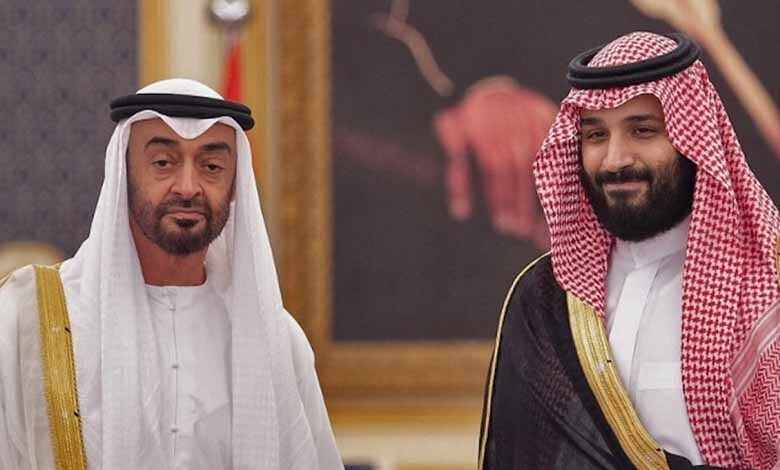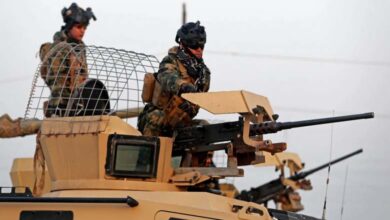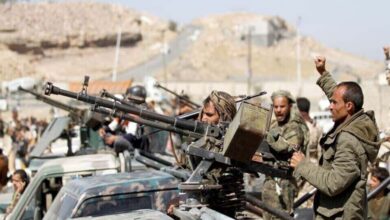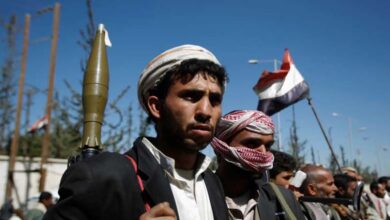Saudi Arabia and UAE ”One Trench Partnership” Triumphs for Region

With every Saudi-Emirati summit, many around the world are anticipating the results that will be in favor of regional and global security and stability.
The relationship between the two countries, described in previous statements by Sheikh Mohammed bin Zayed Al Nahyan, Crown Prince of Abu Dhabi and Deputy Supreme Commander of the UAE Armed Forces, is a “one-trench partnership in confronting the surrounding challenges,” and everyone is aware of its importance in standing firmly against the ambitions and conspiracies being hatched against the countries of the region and facing the various challenges.
“The partnership between the UAE and Saudi Arabia is strong and will continue for the benefit of both countries and the region,” he said during a visit to Riyadh on Monday.
Iran’s interference in the affairs of states, the fight against terrorism, support for the legitimacy of Yemen, the promotion of peace, and even the dissemination of the concepts of tolerance and human brotherhood around the world are the top challenges facing the region.
Sheikh Mohammed bin Zayed Al Nahyan arrived in Riyadh on Monday for a visit to Saudi Arabia. He was met at King Khaled International Airport by Crown Prince Mohammed bin Salman bin Abdulaziz Al Saud, deputy prime minister and defense minister of the Kingdom of Saudi Arabia.
The talks between the two leaders are a new step in a series of joint successes at the internal and foreign policy levels, and a translation of the importance of the partnership between the two countries in supporting the security and stability of the region.
The Saudi-Emirati partnership represents a safety valve not only for the two countries, but also for the entire regional system, as it embodies the values of stability and development, and also represents the logic of political rationality and the concept of a modern State, in respect for international values and legislation.
Human brotherhood
A strong partnership and brotherly relations confirm that what brings the UAE and Saudi Arabia together is not normal, and that the nature of the relationship between them is exceptional by all standards and beneficial to all humanity.
Saudi Arabia has already supported Sheikh Mohammed bin Zayed Al Nahyan’s initiative on the International Day of Human Brotherhood, which was observed by the world for the first time on February 4. The UAE has also supported the “Green Middle East Initiative,” announced by the Crown Prince of Saudi Arabia last March, which aims – in partnership with countries in the region – to plant 50 billion trees as the world’s largest reforestation program to preserve and protect the environment.
Sheikh Mohammed bin Zayed Al Nahyan dedicated to the world an International Day of Fraternity, after sponsoring the Document of Fraternity, which was signed in the Emirates on 4 February 2019 and became a World Day that was celebrated internationally for the first time last February.
The UN General Assembly unanimously adopted World Humanitarian Fraternity Day on February 4 at the initiative of the UAE, in cooperation with Saudi Arabia, Bahrain and Egypt.
The UAE was also at the forefront of countries announcing support for the “Green Middle East Initiative,” after Sheikh Mohammed bin Zayed Al Nahyan received a phone call from Prince Mohammed bin Salman on March 29, during which they discussed the solid brotherly relations between the two countries and their cooperation in various fields.
The two sides discussed the “Green Middle East Initiative” announced by the Saudi Crown Prince, which aims – in partnership with the countries of the region – to plant 50 billion trees as the largest reforestation program in the world to preserve the environment, protect it and sustain its resources, and increase the contribution of renewable energy.. and the importance of joint cooperation to face environmental challenges.
In this context, Sheikh Mohammed bin Zayed Al Nahyan praised the Crown Prince’s initiative and its impact in facing various economic and social challenges related to the environmental conditions in the region and the world and improving the quality of life of societies.
Nasrat Al-Shariya in Yemen
The UAE and Saudi Arabia are credited with exposing Iran’s subversive roles in undermining the foundations of security and stability in the region.
By way of the historic and strategic relations between Saudi Arabia and the United Arab Emirates, the two countries have set an example in facing the challenges that have reached the point of martyrdom in which the blood of both countries has been mixed; in support of legitimacy in Yemen, as part of a coalition to defeat terrorism and counter extremism.
The UAE participated in the Saudi-led Arab Coalition to Uphold Legitimacy in Yemen and was the second country in the process; in terms of the power of participation and political and military influence.
“Since entering the UAE as a key partner in the Arab Coalition to Support Legitimacy in Yemen, it has undertaken to preserve the components of the Yemeni state, defeat the Iranian project, and defeat the Houthi militia and terrorist organizations in this country.”
Since the first moments of Storm Resolve on 26 March 2015, the UAE has been proactive in sending its troops to the temporary capital of Aden to help liberate it, and has played a significant role in liberating it and its neighboring governorates.
At the same time, UAE forces contributed to organizing the national army forces and qualifying the resistance into military brigades. During these battles, UAE forces presented a group of their heroes as martyrs who spilled their pure blood on the soil of Yemen in support of right, legitimacy and duty.
The UAE has repeatedly affirmed its support for all that serves the interests of the Yemeni people and contributes to their stability and security. The UAE has reiterated its commitment to stand by its side and support its legitimate aspirations for development, security and peace, within the framework of its policy of supporting all that benefits the peoples of the region.
Five years after Storm of Resolve began, on 9 February 2020, the UAE celebrated the return of its valiant soldiers who took part in the mission of “Restoring Hope” in Yemen after they successfully completed their tasks of liberation, insurance, and empowerment.
“The UAE announced a shift from a professional direct approach strategy by its armed forces to an indirect approach strategy implemented by Yemeni forces themselves today, following the strategic shift up to today, and confirmed its commitment to supporting the Arab coalition in air operations, logistical support, training and counter-terrorism, which it continues to do today.”
“The UAE will continue to cultivate good, open the doors of hope, and provide humanitarian and development assistance throughout Yemen,” said Sheikh Mohammed bin Zayed al-Nahyan, crown prince of Abu Dhabi and deputy supreme commander of the UAE armed forces.
“In support of sustainable political solutions, the UAE has consistently supported Saudi and international efforts in support of achieving security and stability in Yemen, repeatedly welcoming the implementation of the Riyadh Agreement between Yemen’s internationally recognized legitimate government and the Southern Transitional Council.” “The Riyadh Agreement was signed on 5 November 2019, ending events in the interim capital Aden and uniting all components under the banner of legitimacy, especially after the formation of a government of national competencies in which the transitional government participated for the first time.”
The agreement was reached in the presence of Prince Mohammed bin Salman bin Abdulaziz Al Saud, Crown Prince and Deputy Prime Minister and Minister of Defense of Saudi Arabia, and Sheikh Mohammed bin Zayed Al Nahyan.
“Following the signing of the Riyadh Agreement, Prince Mohammed bin Salman thanked Sheikh Mohammed bin Zayed Al Nahyan, praising the UAE’s great sacrifices with Saudi soldiers and their fellow coalition forces on Yemeni soil.”
“The UAE also supported a Saudi-announced peace initiative for Yemen in March, which included a comprehensive ceasefire, the easing of restrictions on fuel shipments to the port of Al-Hudaydah, the opening of Sanaa airport under coalition and UN supervision, and the resumption of the political process.”
The Brotherhood’s Peril
On the counterterrorism front, the two countries have joined regional and international efforts to counter extremism and terrorism, participating in the U.S.-led international coalition against the terrorist group ISIS in 2014.
The UAE and Saudi Arabia also play a pivotal role in the international fight against extremism and terrorism; In particular, efforts to address cultural and intellectual aspects are appreciated by the entire international community.
The UAE Council for Islamic Legal Opinions issued a fatwa last November condemning the Muslim Brotherhood as a terrorist organization.
The fatwa came about a week after Saudi Arabia’s Grand Mufti Sheikh Abdul Aziz bin Abdullah Al al-Sheikh issued a fatwa that said the Muslim Brotherhood is “deviant and has nothing to do with Islam”. The fatwa was preceded by a statement issued by Saudi Arabia’s Council of Senior Scholars on November 10 that said the Brotherhood is a terrorist organization that does not represent the path of Islam, and called on everyone to “be wary of this group and not to belong to it or sympathize with it”.
Peace dissemination
“Saudi and UAE efforts also played a major role in ending Africa’s longest-running conflict, as their joint efforts contributed to ending the rift between Ethiopia and Eritrea.”
“On 9 July 2018, Eritrean President Isaias Afwerki and Ethiopian Prime Minister Abiy Ahmed signed a peace declaration, officially ending two decades of hostility after the last military confrontation in 2000 between the two sides, which left some 100 thousand dead on both sides and thousands injured, captives and displaced people and cost over US$6 billion.”
The agreement culminated in a number of positive steps on the initiative of the United Arab Emirates and Saudi support to end the conflict between Ethiopia and Eritrea through a summit of the two leaders in the capital Abu Dhabi. These efforts, in which Crown Prince of Abu Dhabi, Deputy Supreme Commander of the United Arab Emirates Armed Forces, contributed a victory for peace diplomacy. The strategic partnership between Saudi Arabia and the UAE is moving toward wider horizons to address various challenges and support regional and global security and stability.
The relationship between the UAE and Saudi Arabia was and remains a safety valve for the preservation of stability and peace in the region and the world, especially since the history of both countries is filled with initiatives to settle Arab differences or to support Arab countries and launch joint initiatives to defuse crises and tensions in the region and beyond.












